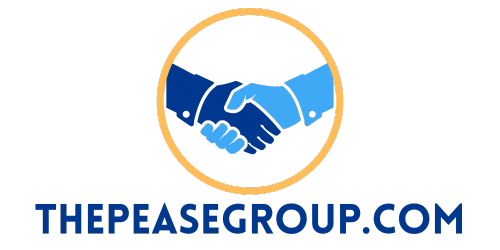In today’s fast-paced digital landscape, B2C sales optimization is crucial for businesses aiming to thrive. With consumers increasingly expecting seamless experiences, companies must adapt their strategies to capture attention and drive conversions. Understanding the nuances of customer behavior and preferences can make all the difference in crafting effective sales techniques.
Effective B2C sales optimization not only boosts revenue but also enhances customer loyalty. By leveraging data analytics and targeted marketing, businesses can tailor their approaches to meet specific consumer needs. This article explores key strategies and best practices that can transform sales processes, ensuring that brands stay competitive and relevant in an ever-evolving marketplace.
Table of Contents
ToggleUnderstanding B2C Sales Optimization
B2C sales optimization focuses on refining sales processes to enhance customer engagement and increase revenue. This approach aligns business strategies with customer preferences for a streamlined purchasing experience.
Definition of B2C Sales Optimization
B2C sales optimization entails strategies and techniques aimed at maximizing the effectiveness of sales efforts directed toward individual consumers. Techniques may include adjusting pricing models, enhancing product visibility, and personalizing marketing messages. By leveraging data analytics and understanding customer journeys, businesses enhance engagement and conversion rates.
Importance of B2C Sales Optimization
B2C sales optimization significantly impacts business success by driving increased sales and customer satisfaction. Effective optimization leads to:
- Improved Customer Experiences: Understanding consumer preferences results in tailored interactions, fostering loyalty and repeat purchases.
- Higher Conversion Rates: Streamlined sales processes reduce friction, encouraging quicker purchasing decisions from consumers.
- Enhanced Competitive Advantage: Businesses that prioritize sales optimization adapt swiftly to market changes, positioning themselves favorably against competitors.
- Increased Revenue: Optimized sales strategies directly correlate with higher sales volumes and improved profit margins.
Adopting a focused approach to B2C sales optimization positions businesses to thrive in a digital marketplace.
Strategies for B2C Sales Optimization

B2C sales optimization involves implementing effective strategies that enhance consumer interaction and improve revenue. Key strategies include enhancing customer experience and leveraging data analytics.
Enhancing Customer Experience
Enhancing customer experience focuses on creating seamless and engaging interactions across all touchpoints. Businesses can achieve this by:
- Streamlining Navigation: Simplifying website navigation boosts user experience, encouraging longer visits and higher conversion rates.
- Personalizing Communications: Tailoring marketing messages based on customer preferences increases relevance, driving engagement.
- Implementing Live Chat: Providing real-time assistance facilitates quicker resolutions, improving satisfaction rates.
- Creating Mobile-Friendly Platforms: Optimizing websites for mobile devices enhances accessibility for on-the-go shoppers.
- Collecting Feedback: Gathering and responding to customer feedback allows businesses to refine services and align with customer expectations.
Leveraging Data Analytics
- Understanding Customer Behavior: Analyzing purchase patterns helps identify trends and preferences, enabling targeted marketing strategies.
- Segmenting Audiences: Segmenting customers based on demographics and behavior allows personalized marketing efforts, increasing engagement.
- Tracking Performance Metrics: Monitoring key performance indicators (KPIs) guides businesses in measuring success and optimizing tactics accordingly.
- Forecasting Trends: Predictive analytics provides insights into future consumer behavior, helping businesses adapt strategies proactively.
- Enhancing Inventory Management: Analyzing sales data improves inventory control, ensuring products meet consumer demand effectively.
Tools for B2C Sales Optimization
Utilizing the right tools plays a crucial role in B2C sales optimization. Various software solutions streamline processes, enhance customer engagement, and improve overall sales performance.
CRM Systems
CRM systems offer a centralized platform for managing customer interactions. They allow businesses to track customer relationships, access valuable insights, and personalize communications. Functions include:
- Contact Management: Store detailed information about customers, including preferences and purchasing history.
- Sales Tracking: Monitor sales pipelines and customer journeys to identify opportunities and optimize engagement.
- Analytics and Reporting: Generate reports highlighting key performance metrics, helping businesses make informed decisions.
- Integration Capabilities: Seamlessly connect with other tools, such as marketing automation software and e-commerce platforms.
Popular CRM systems like Salesforce and HubSpot provide extensive features tailored for B2C businesses, improving customer relationship management and increasing revenue.
Marketing Automation Software
Marketing automation software streamlines marketing efforts and enhances customer engagement. These tools automate repetitive tasks and enable personalized communication with customers. Core functionalities include:
- Email Campaigns: Automate email marketing efforts based on user behavior, ensuring timely and relevant messaging.
- Lead Scoring: Identify and prioritize potential customers based on their interaction with the brand.
- Social Media Management: Schedule and analyze social media posts to maintain a consistent online presence.
- Customer Segmentation: Categorize customers based on demographics and behavior, allowing for targeted marketing strategies.
Tools such as Mailchimp and Marketo facilitate comprehensive marketing automation, ultimately boosting engagement and sales performance for B2C companies.
Measuring B2C Sales Optimization Success
Measuring the success of B2C sales optimization involves tracking specific metrics that reflect customer engagement and overall business performance. Two critical areas for evaluation are Key Performance Indicators (KPIs) and customer feedback.
Key Performance Indicators (KPIs)
Effective KPIs provide quantifiable measures for assessing B2C sales optimization success. Common KPIs include:
- Conversion Rate: The percentage of website visitors who make a purchase, indicating how effectively the sales funnel converts potential buyers.
- Average Order Value: The average amount spent by customers per transaction, which helps identify upsell and cross-sell opportunities.
- Customer Lifetime Value (CLV): The total revenue expected from a customer over their entire relationship with the business, useful for evaluating long-term profitability.
- Customer Acquisition Cost (CAC): The total cost of acquiring a new customer, including marketing and sales expenses, aiding in determining the efficiency of marketing strategies.
- Return on Investment (ROI): A measure of the profitability of marketing campaigns and sales efforts, calculated by comparing the net profit to the total investment.
Analyzing these KPIs allows businesses to identify strengths and weaknesses in their sales processes and make informed adjustments to optimize performance.
Customer Feedback and Surveys
Collecting customer feedback provides direct insight into consumer experiences and preferences. Tools and methods include:
- Post-Purchase Surveys: Simple questionnaires sent after a transaction to gauge customer satisfaction and identify areas for improvement.
- Net Promoter Score (NPS): A metric used to measure customer loyalty by asking how likely customers are to recommend the business to others.
- Focus Groups: Small groups of customers invited to discuss their experiences and suggestions, providing qualitative data that can highlight critical pain points and opportunities.
- Online Reviews and Ratings: Monitoring platforms like Google Reviews and Trustpilot offers valuable feedback on customer perceptions and satisfaction levels.
Utilizing customer feedback effectively enables businesses to tailor strategies and enhance the shopping experience, ultimately leading to increased loyalty and sales.
B2C sales optimization is essential for businesses aiming to thrive in the digital landscape. By focusing on customer engagement and leveraging data-driven insights, companies can create personalized experiences that resonate with consumers. Implementing effective strategies like improving website navigation and utilizing CRM tools can significantly enhance sales processes.
Measuring success through key performance indicators allows businesses to refine their approaches continuously. By prioritizing customer feedback and adapting to evolving preferences, organizations can foster loyalty and drive revenue growth. Embracing these practices positions businesses to not only meet but exceed consumer expectations in an increasingly competitive marketplace.





